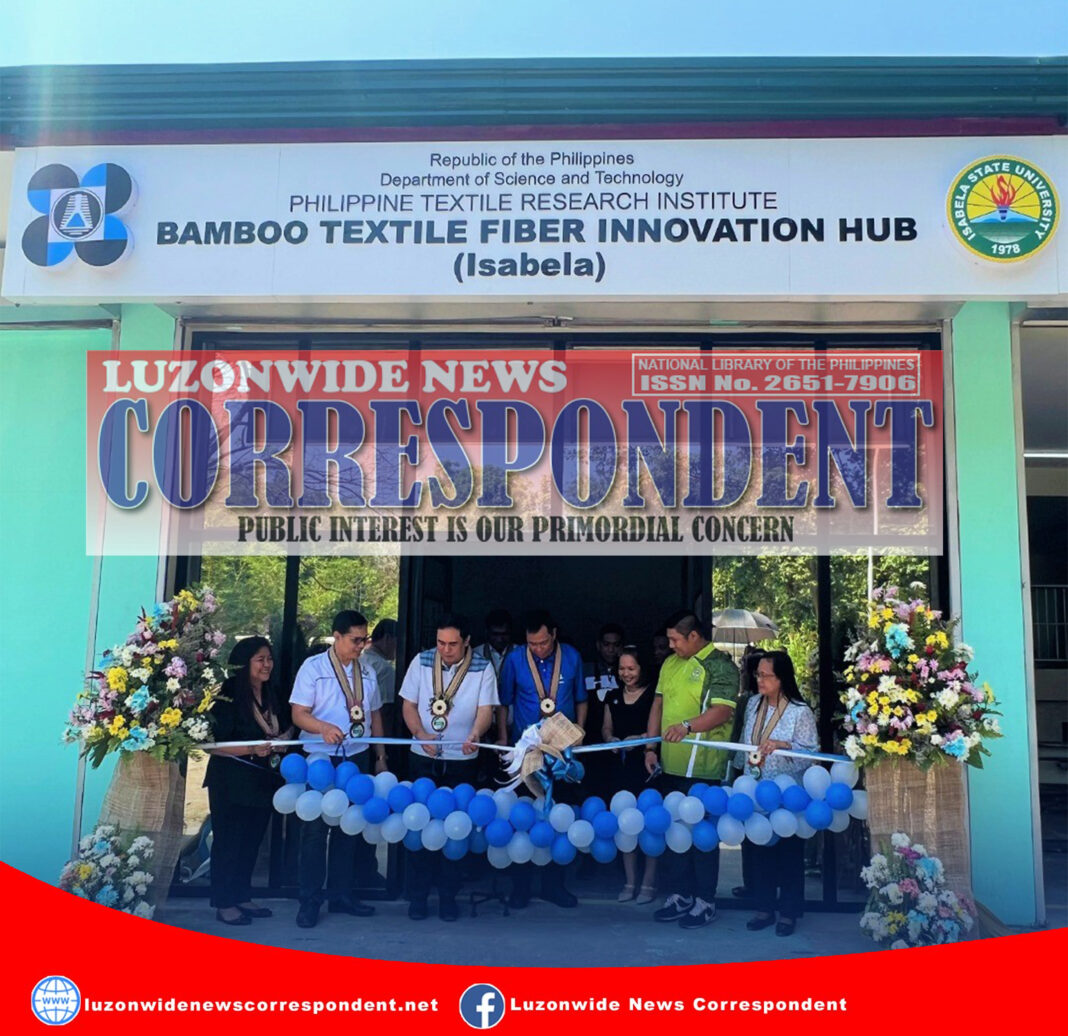Cauayan City, Isabela – Putting at the forefront of R&D and innovation on bamboo for textile wearables and beyond, the Department of Science and Technology (DOST) Region 02, in partnership with DOST PTRI and the Isabela State University (ISU) Cauayan Campus, officially opened the first Bamboo Textile Fiber Innovation Hub (BTFIH) in Northern Luzon on March 3.
The facilities that will transform bamboo fibers into spinnable form are known as the Bamboo Textile Fiber Innovation Hubs (BTFIH). Given the extensive bamboo plantation in the province, it will also operate as a doorway into sustainable bamboo textile production and manufacturing. The equipment that a team of DOST-PTRI scientists created to make real eco-friendly bamboo textile fiber will also be on display at the innovation hub.
The province of Isabela is a prime location to host the BTFIH, with a total of 1,118 hectares of bamboo plantation. To guarantee the quick supply and accessibility of raw materials for the BTFIH, the Provincial Local Government Unit (PLGU) has also ordered each municipality to develop bamboo nurseries and plantations of around 50 hectares. The implementing regulations for R.A. take bamboo textiles into account. 9242, also known as the Philippine Tropical Materials Law, adds the use of materials made from banana culm, silk, pineapple leaf, and abaca for uniforms and other uses. Science, Technology, and Innovation will make bamboo textile fibers more accessible and available, opening up potential for Philippine textiles from the upstream to the downstream.
Additionally, one of the key goals of the BTFIH’s establishment is to coordinate research and development (R&D) activities related to bamboo for textiles while assuring quality and responsibility. To improve the region’s ability to extract textile fibers from raw material sources and process them into a higher-value textile product, a full range of textile fiber treatment machinery is also deployed in the aforementioned hub.
This initiative is also part of the government’s effort to promote industrialization based on agricultural development and agrarian reform through industries that are both competitive in local and international markets and make full and efficient use of both human and natural resources. Additionally, this would assist the Philippines in achieving the Sustainable Development Goals (SDGs), especially SDG12 on sustainable consumption and production. The DOST-GIA project, titled “Integrated Community-scale Textile Fiber Innovation Hubs in Northern Luzon,” which was funded, included the establishment of the hub for the manufacturing of bamboo textile fiber. (Kayla Dy/on-the-job trainee)







